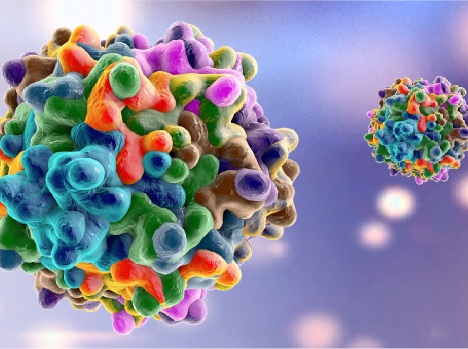
LEXINGTON, Mass., April 16, 2024– Voyager Therapeutics, Inc. (Nasdaq: VYGR), today announced a significant milestone in its collaboration with Neurocrine Biosciences. The joint steering committee has selected a lead development candidate from the GBA1 gene therapy program, aimed at treating Parkinson’s disease and other GBA1-mediated conditions. This candidate showcases a GBA1 gene replacement therapy paired with a novel capsid capable of crossing the blood-brain barrier, developed using Voyager’s proprietary TRACER™ capsid discovery platform. Plans are underway to file an Investigational New Drug (IND) application with the FDA in 2025.
The selection of this candidate has triggered a $3 million milestone payment to Voyager, anticipated in the second quarter of 2024. Voyager could also receive additional payments based on the program’s future development and commercialization progress.
Alfred W. Sandrock, Jr., M.D., Ph.D., CEO of Voyager, expressed optimism about the program’s potential. “The nomination of this development candidate in the GBA1 program, along with the recent candidate from the Friedreich’s ataxia program, underscores the productive partnership between Voyager and Neurocrine in advancing gene therapies for neurological disorders,” he stated. He also highlighted the broader potential of three gene therapies using the novel TRACER capsids expected to enter clinical trials in 2025.
The GBA1 program forms part of a broader 2023 strategic alliance between Voyager and Neurocrine, focusing on the research, development, manufacturing, and commercialization of AAV gene therapy products targeting Parkinson’s disease and other central nervous system diseases associated with rare genetic markers. Under the agreement, Voyager could receive up to $1.5 billion in potential development milestone payments, additional commercial milestone payments, tiered royalties on net sales, and program funding. Voyager retains the option for cost- and profit-sharing in the U.S. following preliminary clinical trial data for the Parkinson’s disease program.
About TRACER™ Capsid Discovery Platform
Voyager’s TRACER™ (Tropism Redirection of AAV by Cell-type-specific Expression of RNA) capsid discovery platform is an RNA-based screening technology that facilitates the discovery of AAV capsids with enhanced penetration of the blood-brain barrier and specific targeting of the central nervous system. This technology has shown superior gene expression across the CNS and selective targeting capabilities in various species, including non-human primates. Voyager’s strategy includes partnering to leverage these next-generation capsids across multiple disease areas.
About Voyager Therapeutics
Voyager Therapeutics is committed to harnessing human genetics to revolutionize the treatment of neurological diseases. Its portfolio includes therapies targeting Alzheimer’s disease, amyotrophic lateral sclerosis (ALS), Parkinson’s disease, and more, many of which derive from its TRACER™ AAV capsid discovery platform. The company has partnerships with several leading biotechnology and pharmaceutical companies to accelerate its programs.

Check out our AAV capsid engineering service to expedite your gene therapy research
PackGene Biotech is a world-leading CRO and CDMO, excelling in AAV vectors, mRNA, plasmid DNA, and lentiviral vector solutions. Our comprehensive offerings span from vector design and construction to AAV, lentivirus, and mRNA services. With a sharp focus on early-stage drug discovery, preclinical development, and cell and gene therapy trials, we deliver cost-effective, dependable, and scalable production solutions. Leveraging our groundbreaking π-alpha 293 AAV high-yield platform, we amplify AAV production by up to 10-fold, yielding up to 1e+17vg per batch to meet diverse commercial and clinical project needs. Moreover, our tailored mRNA and LNP products and services cater to every stage of drug and vaccine development, from research to GMP production, providing a seamless, end-to-end solution.
Related News
Exploring Tau Protein’s Role in Glaucoma: New Insights and Therapeutic Potential
Glaucoma, a chronic neurodegenerative disorder, leads to irreversible vision loss by damaging retinal ganglion cells (RGCs) and the optic nerve, often associated with increased intraocular pressure (IOP). Despite the benefits of IOP-lowering treatments, the underlying...
FDA-mandated CAR-T monitoring period could be halved, say researchers
In patients with diffuse large B-cell non-Hodgkin lymphoma (DLBCL), the two hallmark post-chimeric antigen receptor (CAR)-T therapy toxicities are extremely rare after two weeks, supporting a shorter, more flexible toxicity monitoring period, according to a study...
Ancestral CRISPR-Cas13 Ribonucleases Discovered: Implications for Genome Editing
In a pioneering study published in *Science*, a team of researchers led by Peter H. Yoon and Jennifer A. Doudna from the University of California, Berkeley, has made a remarkable discovery in the realm of CRISPR technology. The team has identified an ancestral clade...
KBI Biopharma Expands Manufacturing Contract with Global Pharmaceutical Company
KBI Biopharma Inc., a JSR Life Sciences company and global cGMP contract development and manufacturing organization (CDMO), has extended and expanded its manufacturing contract with a leading global pharmaceutical company. Originally initiated in 2020, the renewed...
Related Services

Plasmids GMP Services

AAV GMP Services


